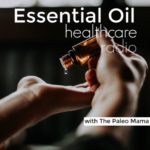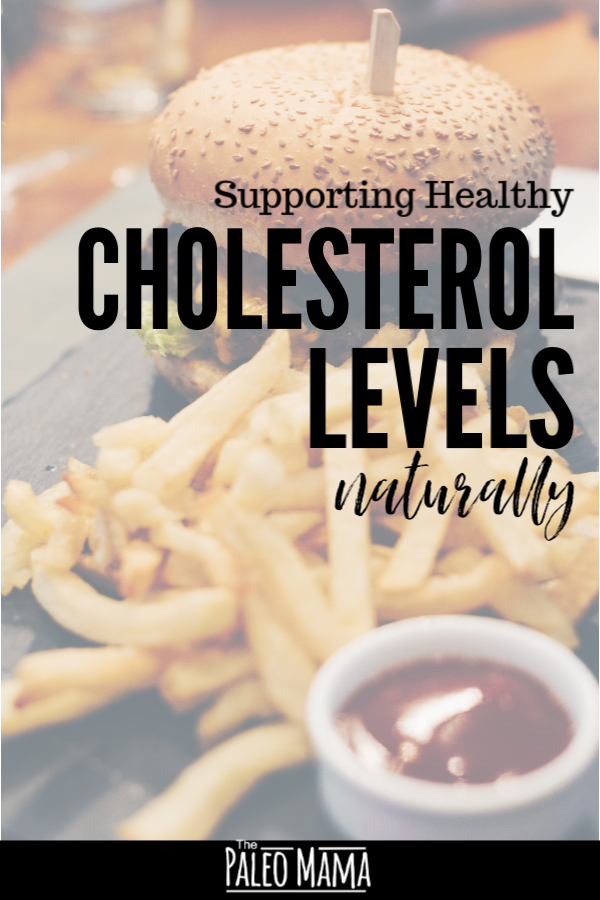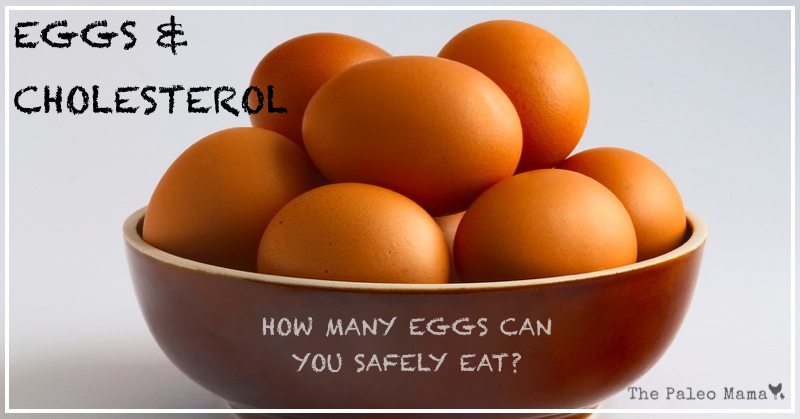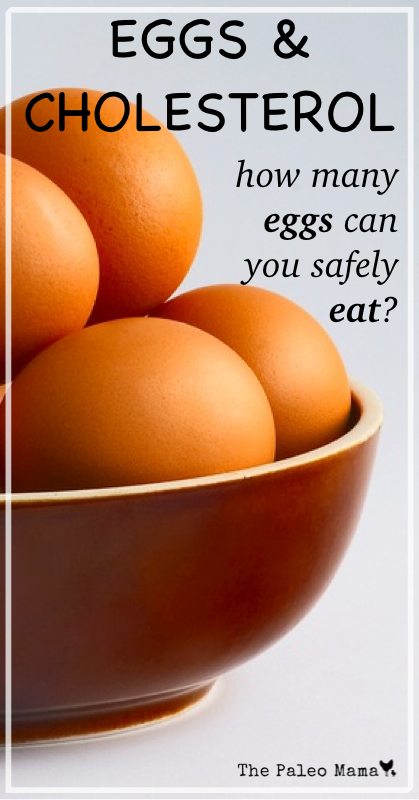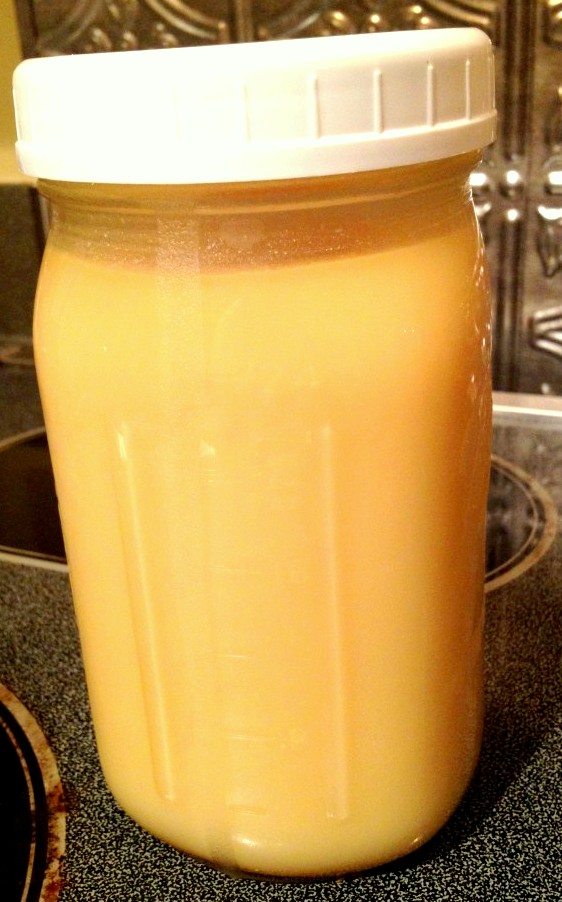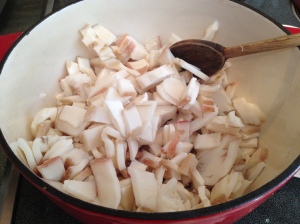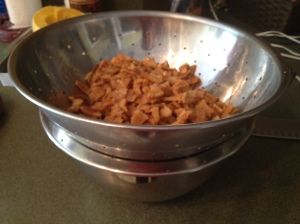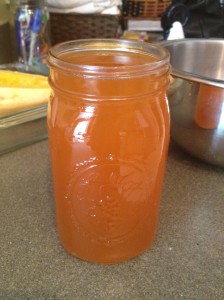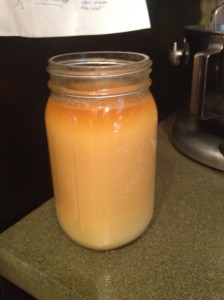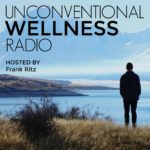
Hey everyone! This podcast episode is fresh and chock-full of goodies to help you get informed about cholesterol and how to get it healthy and working for you!
In this episode we discuss:
- What is cholesterol and what are the functions in the body
- How do we measure it? What do these labs help with?
- Some supplements that may help!
Enjoy!
Here are the show notes for today:
Frank: 00:01 Hey everyone, and welcome to unconventional wellness radio a powerful and inspiring podcast set to revolutionize and disrupt healthcare. It’s trying to put you in the driver’s seat and be the force of change necessary for the lifestyle you’ve always wanted.
Frank: 00:16 Hey, what’s going on everybody? It’s frank and I am here with unconventional wellness radio. And uh, before I start today, even though we’re going to talk about maintaining healthy cholesterol levels, what I want to talk to you about is the program that we are getting ready to launch, hopefully within the next, I’m going to put myself on the spot right now. My goal is roughly four to six at the absolute worst eight weeks. I’ve realized that by recording all of the material that I want to bring for unconventional wellness is that unfortunately there’s so much material that I want to make sure that I get it done the right way and it’s just been like morphing into this thing that’s like just in awesome.
Frank: 01:01 I mean, honestly, I’m not just saying that, uh, I’ve been doing it with a couple of friends in terms of bouncing off ideas and bouncing off content of them and they actually think it’s a really great thing. So bear with me, I am frantically recording the videos, getting the materials together. I’m going to have printable PDFs that are going to have notes on there. We’re going to have some action plan steps and things like that that you’ll be able to follow. And quite honestly, I really feel that this is going to be a pretty amazing thing for you to be able to step into the wellness lifestyle that you have always desired. We’re going to talk about the core for a, I don’t want to give out a ton of secrets, but we’re going to talk about foundational things and I’m going to describe them in such a way to where it will hopefully be nice and super straight forward to you.
Frank: 01:52 So we’re going to talk about different nutritional pathways. We’re going to talk about functional pathways of movement. You know we’re going to talk about some of the more popular ways of working out and then really just honestly, if you just want to stay active, how does that look? We’re going to talk about how to get better sleep, how to help remove stress out of your life to reduce stress or be able to manage your stress more effectively. And then I also talk about toxicities of various different foods that are out there, different problems with our water supply and really just things that might be resonant in our household that were completely unaware, aware of that could be actually harming us. So I am getting really, really excited about it. We’re going to start referring to ourselves as wellness warriors. I am super unbelievably excited about what is in store for the program of unconventional wellness.
Frank: 02:40 So please, please, please go to unconventional-wellness.com sign up by putting your email in there. You will get newsletters from us from time to time. I promise I won’t spam your inbox with a bunch of crazy information, but it is just to simply make sure that you stay abreast of what is happening new with unconventional wellness. Matter of fact, that way you don’t think that I’m going to span you. I still have not even actually sent an email out yet. So, um, if you already have subscribed to the newsletter, don’t worry, you have not missed anything because I don’t believe in spam and I don’t want to spam anybodies inbox for, for craziness. I want to make sure that you’re getting real, usable, verifiable data and content that way you can live that wellness lifestyle that you’ve always wanted. But what were you going to talk about on today’s podcast is going to be cholesterol, maintaining cholesterol.
Frank: 03:34 First of all, we’re going to start off by talking about what is cholesterol and what are the historical pieces of data that we actually have about cholesterol and how have we really missed the mark about our understanding of cholesterol. To give you a backstory about how I am, I come from an Italian household, okay. Uh, folks around the Mediterranean have actually been seen genetically to have a predisposition to actually having high cholesterol. But when I coupled that with our standard American diet, which you’ll hear me refer to it as the sad diet because that’s not only the acronym, but it really is a sad diet that I was really skyrocketing in my cholesterol panel numbers. And we’ll dive into that in a second about what those mean and how do we interpret that data and all that kind of stuff as well. But that is really the only thing that I’ve always had to battle with.
Frank: 04:27 So knock on wood, I’ve actually had just that focus of mine for really most of my adult life. I, I didn’t necessarily even realize that it was something that was happening in my life. And so I started putting the pieces together and everything like that. And now that I have become pretty aware of that situation, in that story in my life, I’ve been able to actually really dive into it and be able to actually focus on how I can ensure that I am maintaining healthy cholesterol levels. And I would love to share that with you. So let’s first start off by talking about what is cholesterol anyway. Okay. So lots of studies from the food and Drug Administration, uh, have specified since say about the 1960s, even 1970s, uh, really with a lot of research happening in the eighties and nineties in reference to cholesterol. And what are the ramifications of cholesterol with a person’s overall cardiovascular health?
Frank: 05:25 Well, if you are aware or if you are a child of the eighties and nineties, such as I was, we at that time were being told that eating cholesterol was a bad thing. I remember, uh, the egg white industry like skyrocketed because all the cholesterol is in the yolk of the egg. And so egg beaters and some of those other companies, you’re welcome for the shout out. They ended up putting products on the shelves about people who wanted to watch having the whole egg and only wanted the egg whites. Egg White Omelets became popular. And then one of the thing that happened was fat free foods. And these my friends have been some of the cornerstone of poor health and poor food for a very long time. We’re talking decades worth. So the thing about the fast, or excuse me, the fat free fad, which unfortunately is not so much a fat as you can still see fat free foods that are currently on our shelves.
Frank: 06:22 But what we found out, or what I should say is that what manufacturers of foods found out was if we remove the fat, we’re removing the flavor. And so therefore now we have to put a bunch of preservatives and additives and sugar into these foods to make them actually taste better. And so you’d be sitting there munching on a box of fat free cookies, not realizing that you were consuming like just grams and grams of carbohydrates and processed sugars in the process. And so people were wondering, why am I not losing weight? And now while all of a sudden do I possibly have this situation where I’m dealing with diabetes. So we were trading, we were that, that typical kind of robbing Peter to pay Paul Concept. And thankfully now a lot more research has come out and a lot more diet nutritional plans have actually demonstrated the importance of healthy fats in our diet in order to be able to have that particular cardiovascular lifestyle that we’ve always wanted.
Frank: 07:22 And so what we are looking at now is demystifying the things that have been surrounding cholesterol. And I’m here to tell you that you are not alone in your battle with cholesterol and that I want to help you understand what cholesterol is about and how can you utilize it to make sure that you are living a very healthy lifestyle. So first and foremost, let me give a quick disclaimer, make sure that you are following with your healthcare provider and that their health care providers ordering at least something basic called a lipid panel. But there is a friend of mine and if you go back to our previous episodes, he does a great job of explaining some of these laboratory tests about the different types of things that we should be looking for in our blood to determine how healthy our bodies currently our, his name is Dr Jack Wolfson.
Frank: 08:16 You can see them on the website, thedrswolfson.com he is a cardiologist, he is a board certified cardiologist and both he and his wife are a practicing providers, him being the cardiologist, his wife is a chiropractor and they are fantastic folks to follow the from the wonderful state of Arizona down in the southwest of the United States. And they’re doing wonderful, great and good things with helping people understand how to achieve wellness as well. And so, you know, starting with an Olympic panel is the first thing, but then there are other labs that we should be definitely doing in order to determine where do we sit in terms of our actual fitness level, our actual health level at that time. Okay. Check out his book. He does a really great job of showing the top 20 laboratory tests that he recommends for most people who are starting the Paleo lifestyle and want to get a more heart, healthy life.
Frank: 09:12 So please check out his book. It’s the Paleo Cardiologist, but enough about that. So what I do is I started it off with my lipid panel. Now this is what cholesterol means. It breaks down the liquid panel into a couple of different things. There is your total cholesterol, there is what is called your LDL. It breaks it down into your HDL and depending upon the type of panel you have, you might get a ratio involved in that or you can end up also seeing what your triglyceride levels aren’t. So what I’ll do is I’m going to break down each one of those values, but of course their age specific and things like that. But I want to explain what each one of those values or I should say what each one of those categories represent. So total cholesterol is going to be exactly just what it sounds like.
Frank: 09:56 It’s going to look at every type of cholesterol currently in your blood. And the vast majority of folks fall into the, up to about 199. Uh, what is recorded as 199, uh, within a deciliter of blood, those particular cholesterol units, if those are found, if you’re above one eight, nine, one 99, that is considered high. Okay. That’s total cholesterol when you dropped down and you look at Ldl, that stands for low density lipoproteins, but it doesn’t really stop there. We’ll talk about some other different types of lipid proteins that are available or that I should say are seen instead of the blood as well. But anyway, your LDL or low density lipoproteins, think of that as the bad cholesterol that is, the cholesterol is big, it’s fluffy, it does a really great job of becoming sticky when there’s uh, an injury on the inside of one of your blood vessels.
Frank: 10:48 And then those are the types of things that can really help start this plaque formation inside of your blood vessels that could eventually lead tor cardiovascular compromise and eventually other issues as well. More significant life threatening issues as well so that his LDL, HDL cholesterol stands for high density lipoproteins. So these are sort of like what I considered to be the pacman and the blood. They’re job is to go around and actually help regulate the forms of bad cholesterol in the blood. Okay. Those types of, uh, cholesterol molecules are what we’re shooting for. The reason why is because those at a certain level, for most men, it’s over 60. I believe for women it might be over 70. I might be a little wrong on that. Like I said, check with your healthcare providers, but at a certain level of HDL being present in your blood, uh, research has shown that that can be actually cardioprotective, meaning that it can actually help with the, uh, with the chances or decrease the chances of a cardiovascular problem.
Frank: 11:51 Okay, so that’s HDL. The last thing is something called triglycerides. It’s a particular form of how we kind of store fat and move that around in the body. Okay. Long story short is that it’s fats with sugar. That’s really what that if you break down the word triglyceride, that kind of was what it means. There’s the word try in there, which means three. Um, so therefore it’s just to describe the type of molecule that is being created inside of the movement and also storage of fats along inside the body. The thing about having a high triglyceride number is that it actually can lead to problems with a person’s pancreas. Okay. So that’s why it’s important to take a look at triglycerides, especially those that consume alcohol. They have a better chance of having elevated triglycerides and that is pretty much your lipid panel in a nutshell.
Frank: 12:40 Well, let’s break it down just a wee bit further and let’s talk about what is cholesterol, cholesterol folks. Bottom line, it’s not a terrible thing as much as it’s being touted that it actually has cholesterol ends up being the backbone of a lot of the hormones that are currently circulating in our body. It is the backbone of estrogen. It is the backbone of progesterone. It is the backbone of Vitamin D. It’s the backbone of a number of very important molecules in your body. Additionally, cholesterol is found in every single cell wall inside of your body. If we did not have cholesterol, we would, for all intents and purposes be a pile of Goo. The reason why is because we would essentially dissolve ourselves because we would not have that wonderful fat layer surrounding ourselves and being able to create that wall that a lot of the magic of metabolism in the line of the magic of metabolism happens within.
Frank: 13:36 And so cholesterol is essential to life. We need cholesterol. That’s the reason why our bodies in the liver actually create cholesterol. We create cholesterol usually while we’re sleeping and were very unaware of it. And so cholesterol is crucially important to our health and we want to make sure that we’re actually eating the appropriate right sources of cholesterol, having a healthy, active lifestyle, staying well hydrated, doing all of the other things, getting plenty of sunshine in order for our bodies to be able to adequately manage the type of cholesterol that we truly need to be able to be healthy. Let that sink in for a second. Folks, we need cholesterol for life. And so what happens here is we have to ask ourselves what sources of cholesterol are we in fact getting? Are we eating a diet that is super high in regular, terrible fats? Which means that could be directly related to terrible cholesterol levels as well.
Frank: 14:41 Or are we eating grass fed quality meats? Lots and lots of organic vegetables or vegetables that are grown in our local environments by farmers who are following organic practices, avoiding pesticides, avoiding insecticides, avoiding herbicides and getting out and getting plenty of sunshine. That’s a great start for anyone if they want to start managing their cholesterol in a much better way. There are some different things that I can offer to you on this podcast that you can start doing besides getting yourself on a great diet protocol, eating the right types of foods, and then getting out and maintaining a healthy lifestyle. By the way that a healthy lifestyle folks does not need to have any type of science behind it. You absolutely should stay active for at least 20 minutes per day. Go out and do something that you enjoy. Go walking, go bike and go hiking.
Frank: 15:34 Play with your kids, do something that will elevate. I mean, you can even get a great workout if you clean your house. Not only will it make you feel better because of the fact that a place where in which you’re living in is decluttered and clean and it’s really great for your health anyway. Uh, we’ll save that for another podcast because of all the different chemicals that are present within our homes. But it is also fabulous because it will get your heart rate up if you actually do it vigorously enough. So buying these expensive memberships to different gyms and stuff like that, if that’s your cup of tea, great. But the fact of the matter is, is getting at least 20 minutes of exercise every single day. That’s what the American Heart Association recommends, is that you get at least a hundred to 125 minutes of actual exercise every single week and that will significantly help you.
Frank: 16:26 Okay, then, well, let’s take a look at some of the foods that we can be eating. Well, we need to be eating a diet higher in fiber. Okay. Dietary fiber has been shown clinically to reduce or should say, to help reduce blood cholesterol levels. Okay. And help maintain those within the, uh, the normal ranges. Okay. So therefore we should be looking at, once again, different ways we can consume fiber. You can get plenty of fiber through a plant based or a plant foundational based Diet. Okay. Be eating lots of vegetables, minimize the fruits, but when you eat fruit, eat the skin. The skin is one of the most importantly beneficial, nutritious parts of the entire piece of fruit itself. So eat the skin when you can. Just make sure that you get it from a very good source. That way it’s not full of stuff like pesticides or insecticides or other sprays that people put on these things in order to make them look good.
Frank: 17:25 You know, I always jokingly say you should be eating ugly fruit. We usually, the reason why I say that is because if you think about it, you take a nice fresh organic or organically grown a payer or something like that and stick it next to one that is like, who knows how it was processed except for the fact that it may have been painted. There could be a wax on it. There could be things done to it even before it’s picked and it usually looks extremely pretty. The thing is though, is that I know that that ugly fruit was handled in a much more sustainable way. Then usually that extremely pretty looking fruit that you could probably put it on Instagram or something like that. Okay. I adore ugly fruit. I really, really do. Okay. But anyway, so we want to look at dietary fiber.
Frank: 18:11 We’ve got to boost that. Okay. The next thing is is that we want to make sure that we have adequate vitamin D levels. I did not know this until Dr Wolfson explained it to me, but it makes perfect sense since the backbone of cholesterol, or excuse me, since the backbone of vitamin D is cholesterol, it makes sense. Go out and get sunshine, and the reason why is because you’ll soak up a bunch of that extra cholesterol because your body wants to convert it into vitamin D. Vitamin D is crucial for very many different types of metabolic functions within the body. It acts as a cofactor in quite a bit, a different metabolic functions. Okay. And so it actually makes perfect sense that we should go out and get plenty of sunshine. That way we can increase our vitamin D levels. Vitamin D levels have been shown to really help boost our immunity.
Frank: 18:54 It’s fantastic for healthy bones and teeth and it is just crucial to life as well. It’s a really, really wonderful vitamin to have and it also helps regulate your cholesterol levels healthy as well. There’s another podcast that I’ve done about super foods. Super Foods are wonderful. Those were really great way to help boost your metabolism, help boost your abilities to have a very healthy lifestyle. So please check out previous podcast episodes. I can’t remember what number it is. It might be like in the tens or something like that, but please check out superfoods as well. Okay, so those are some of the foods that we can do. All right. Then you want to go ahead and look at what are some like different kinds of supplements, if you will. Now, if you’re doing all of this foundational stuff, you should be, you know, I mean I can’t put a percentage on it, but I’d say you’re doing at least half of everything that you could be doing in order to help improve your cholesterol levels.
Frank: 19:48 Okay. But what I’ve done in addition to is I take a couple of supplements that I know that are going to be very beneficial for helping reduce and maintain the cholesterol levels where I would like end to end up being. Okay. And one of those is that I take something called Red Yeast Rice. Red Yeast Rice has the same capability as one of those expensively kind of heavy side effect medications that’s out there right now, which is known as a status. Okay. All Stat and medications are great at helping with cholesterol levels. The thing is though is that there are some known side effects with sentences. So therefore I personally do not want to take status. And so what I take is I take a supplement called red yeast rice, which is a natural form of something that acts very similar to like what the consumption of a stat would be like in the body.
Frank: 20:39 And so I enjoy taking red yeast rice. I will either take red use dice with something with co Q 10 cause code you 10 is extremely important in the body because that also helps with the regulation of fat metabolism and otherwise metabolism in the body as well. And so I really like it with either that or even nattokinase and I know kinase is a really fabulous fermented type of Tofu. It mainly comes from Japan. All right? That’s how we learned about the technology and I just don’t even know if I could speak enough benefit about nattokinase. It is probably one of the healthiest versions of food that you could probably eat. I really love it. So I had to get ready to use rice with cocuten added or red research with um, nattokinase and then just add the you attendance at separate capsule. Okay. So that’s what I do for myself.
Frank: 21:26 Additionally, I made sure, of course I’m taking plenty of really good high quality fish oil. Okay. Me Personally, because of the fact that I’ve got some genetics that I got to go against, I usually take double the amount of what you should, which is normally the standard that I’ve seen in vast majority of literature is at least 1000 milligrams. But make sure you get yourself a nice high quality sustainable version of fish oil and follow the directions. The other big component is take a look at the EPA and Dha. I’m not even gonna try to pronounce either one of those types of, um, healthy fats, if you will, but make sure that you get a good high quality one, um, in order to be able to make sure that you’re getting plenty of high quality Omega threes. Okay. Additionally, of course, eat seafood, right? So like your fatty fishes.
Frank: 22:15 So they think tunas and mackerel and Salmon make sure that they’re sourced really, really well, so they’re not full of a bunch of mercury and stuff like that. But those types of fishes are really great too for being able to help boost really great omega three fatty acids. Omega three fatty acids are really wonderful for, um, being like really great to help inflammatory levels. And so, um, it has been shown through research that Omega Three’s actually benefit, uh, the, the appropriate healthy levels of inflammation in the body, uh, more so than Omega sixes. But it is a nice blend that you want to get between Omega threes and Omega sixes. But I’ll make it, the rays are showing a lot of really great promise when it comes to, uh, helping maintain a very healthy cardiovascular system. That’s really the two largest ones that I actually take.
Frank: 23:00 Um, yes, I do in fact also use some essential oils and this is not meant to sell you essential oils, but there are some essential oils that I really appreciate. Uh, lemon grass is one of them. Uh, I love cinnamon because that helps maintain healthy blood sugar levels and blood sugar and a and, and healthy cholesterol levels. Um, kind of run hand in hand. Usually if one is out of whack, the other one could be also at a wack, not to say that they’re directly correlated, but if you have both conditions of both high cholesterol and high blood sugar, it absolutely skyrockets your risk for having a cardiovascular event. So, um, it’s very important to also consider managing good, healthy blood sugar levels as well. And so that’s reason why I really liked cinnamon is that it helps regulate those blood sugars in a very good, healthy way and it keeps those within the healthy limits as well.
Frank: 23:52 Um, some of the other essential oils that I love taking Frankincense, I take that every single day. It’s really great for just overall just overall healthy wellness lifestyle and it’s really great for us cellular vitality. And so I absolutely adore frankincense cause it’s a great, it’s also known as the great, the great enhancer if you will. Uh, it’s also the king of essential oils and so like it actually will help promote the ability of other essential oils. So that’s why I absolutely love taking that, um, that essential oil or using that essential oil every single day as well. But that’s pretty much guys, what I do. I just make sure that I foundationally, I get great sleep. I eat right, I maintain a healthy lifestyle exercise, and then I consider those supplements. Not to say go out there and go break the bank and buy a bunch of supplements in essential oils, but start off by getting those labs first.
Frank: 24:47 Speak with your healthcare provider. Let them know your intentions, let them know that you want to start trying to manage these things and the natural way in order to be able to see what those lab values are so you can tweak as you go along. I am like a big advocate of making sure that if I do something new, I follow it up with my healthcare provider to make sure like what I did was actually useful and beneficial. Okay, but that’s all I’ve got for today. I hope that this was a value to you as always, always. I really love receiving those comments from you guys, those ratings and reviews from you, so please subscribe to this channel. That way you can stay abreast of all of the natural things that I’m going to bring to you on unconventional wellness, as well as whenever I finally can get that program a hundred percent squared away because I’d love to get that out to you guys as well.
Frank: 25:38 So subscribe, leave me a comment, leave me a rating and I will absolutely read those and respond to those. I love seeing those guys and I really thank you for all of those that I’ve already received and if you actually do so and you will get this content, and guess what, I probably will jump on that wonderful thing called the bandwagon and I would love to do some giveaways about this new program on conventional, on this in upcoming outlet. So subscribe, stay tuned and received those newsletters and I cannot wait to talk to you again in about a week for more unconventional on this radio. I love you guys. Take care and have a great Great weekend.
